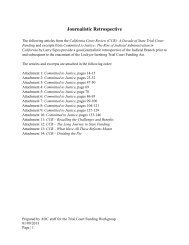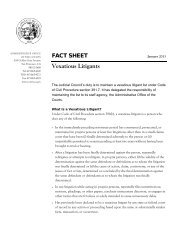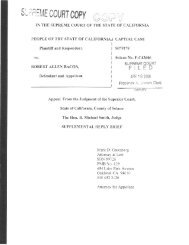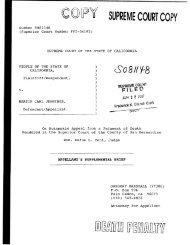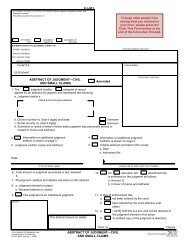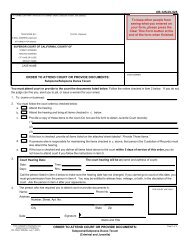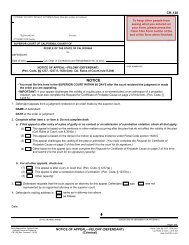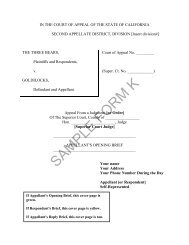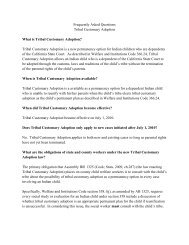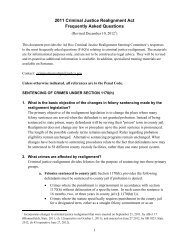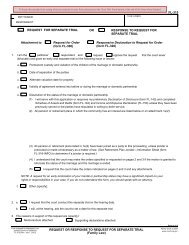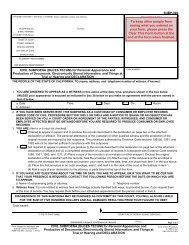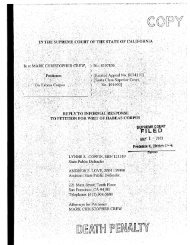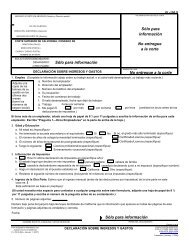Appellant, William Satele, Reply Brief - California Courts - State of ...
Appellant, William Satele, Reply Brief - California Courts - State of ...
Appellant, William Satele, Reply Brief - California Courts - State of ...
You also want an ePaper? Increase the reach of your titles
YUMPU automatically turns print PDFs into web optimized ePapers that Google loves.
participation <strong>of</strong>all jurors. Contrary to respondent's argument, the fact that the<br />
court used the word "now" in the instruction (RB at p. 219) did nothing to convey<br />
this crucial requirement that the jury must throw out all previous deliberations and<br />
start over. Without such an instruction, the original jurors could very well<br />
participate in further deliberations, even though they had already reached his or<br />
her conclusion, based on full and complete deliberations that had already occurred.<br />
In summary, the instruction given to the jury was devoid <strong>of</strong> the crucial<br />
element instructing the jury to begin deliberations anew. As will be shown, there<br />
is every reason to conclude that the jury did not begin the deliberative process<br />
anew and that the replacement jurors were not given the opportunity to participate<br />
fully.<br />
C. <strong>Appellant</strong> Was Prejudiced By The Failure Of The Trial Court To Instruct<br />
The Newly Reconstituted Jury To Begin Deliberations Anew.<br />
In disputing the existence <strong>of</strong>prejudice, respondent dismisses as speculation<br />
appellant's argument that "[t]here is a natural tendency among people to not want<br />
to re-harsh matters that have previously been reviewed and possibly resolved"<br />
(AOB at p. 242.) Respondent argues that "[s]uch speculation cannot form the<br />
basis for a successful attack on the verdict or judgment. (People v. Anderson<br />
(1990) 52 Ca1.3d 453,483.)" (RB at p. 219.)<br />
Ifby "speculation" respondent means the attempt to understand how a jury<br />
might be influenced by certain evidence or instructions, then in every analysis <strong>of</strong><br />
prejudice there is some degree <strong>of</strong>"speculation."<br />
In fact, <strong>California</strong> law regarding the evaluation <strong>of</strong> prejudice from juror<br />
misconduct or other errors occurring during deliberations actually compels<br />
"speculation." Evidence Code § 1150 provides:<br />
Upon an inquiry as to the validity <strong>of</strong> a verdict, any otherwise<br />
admissible evidence may be received as to statements made, or<br />
120



